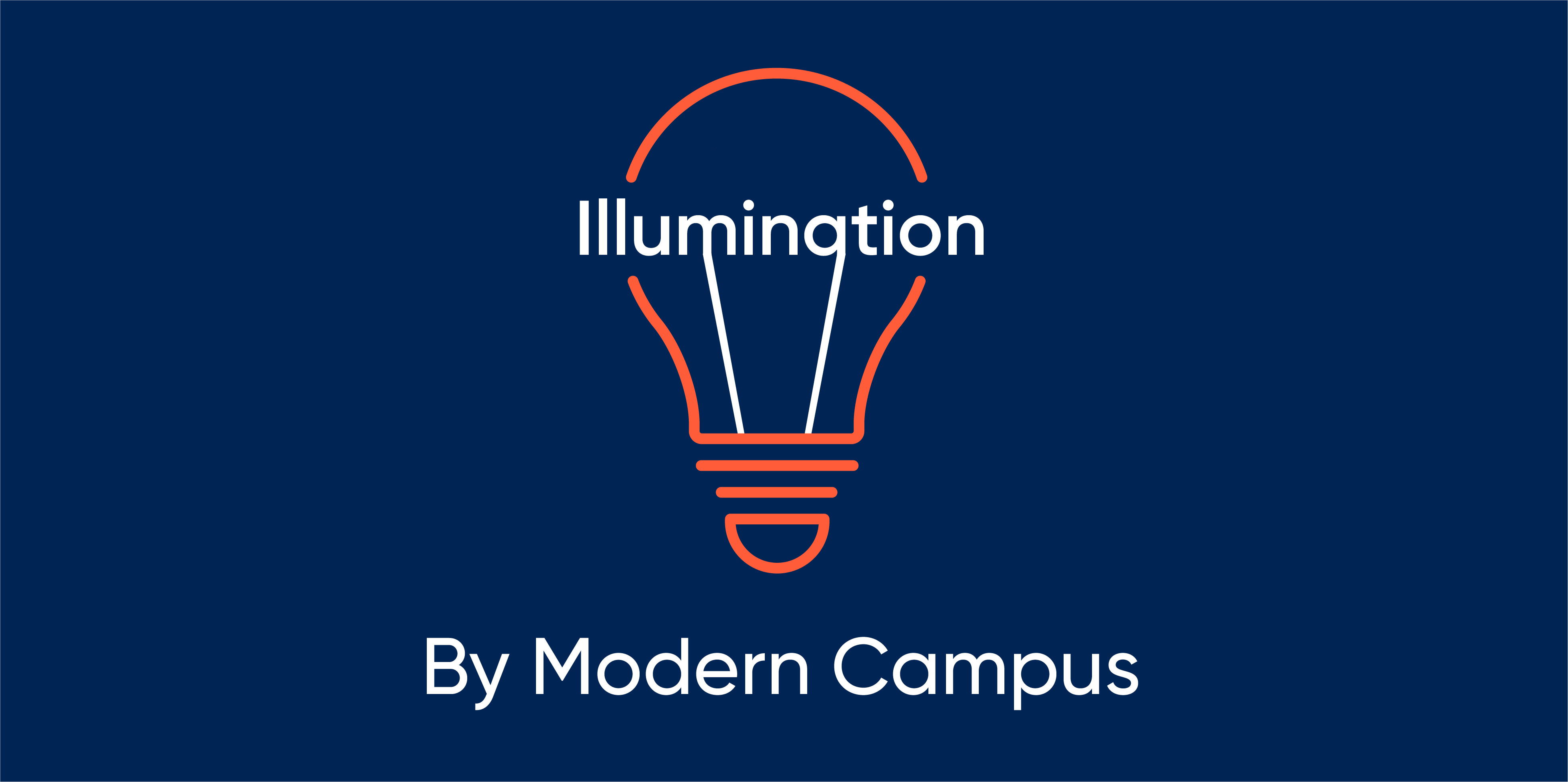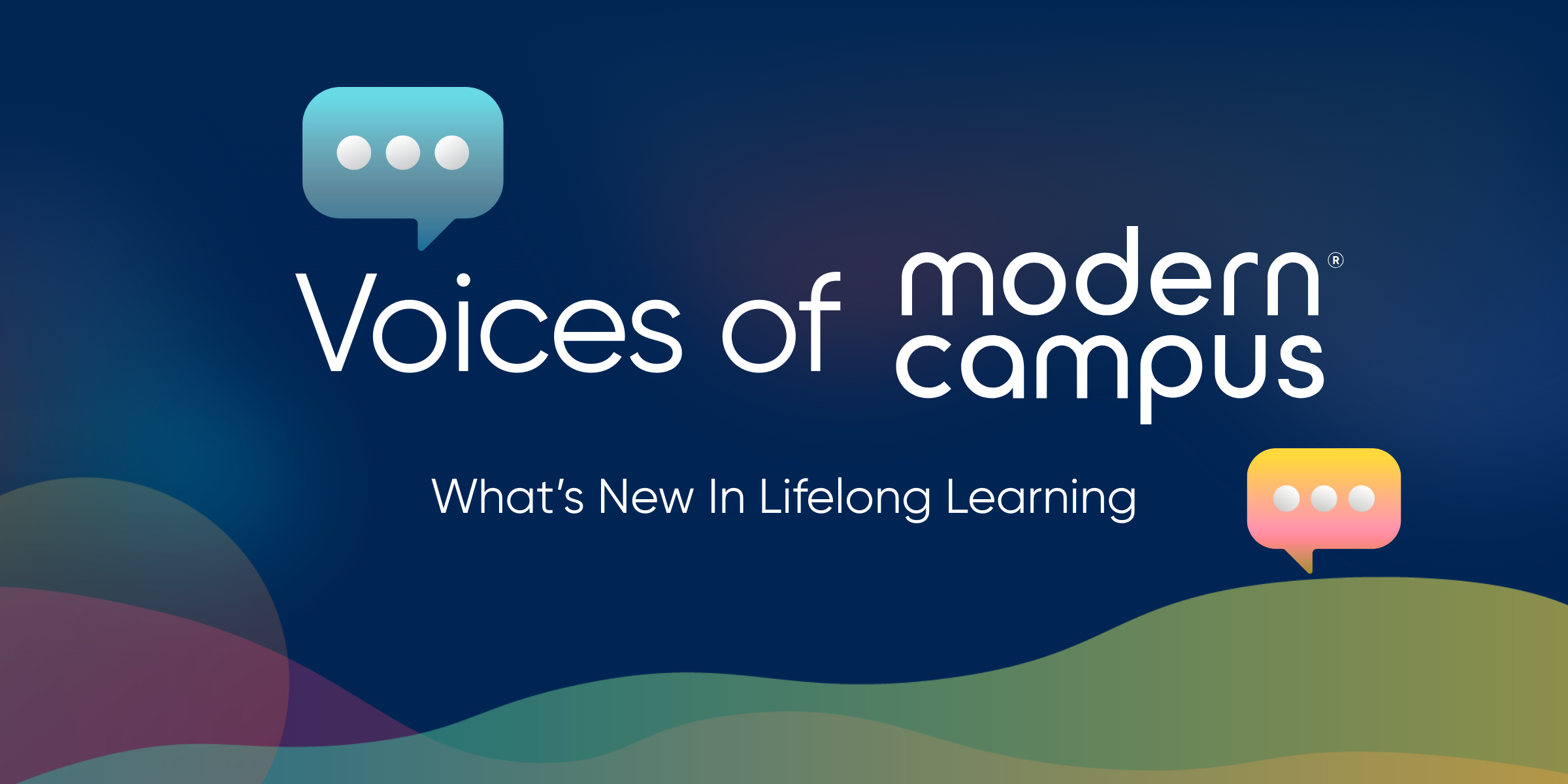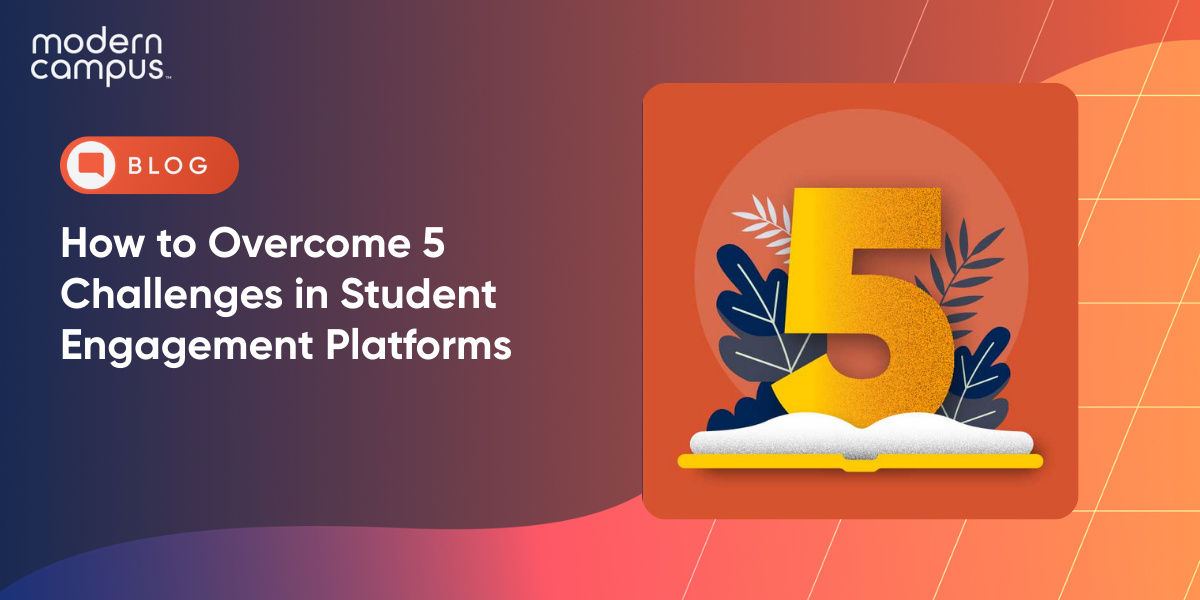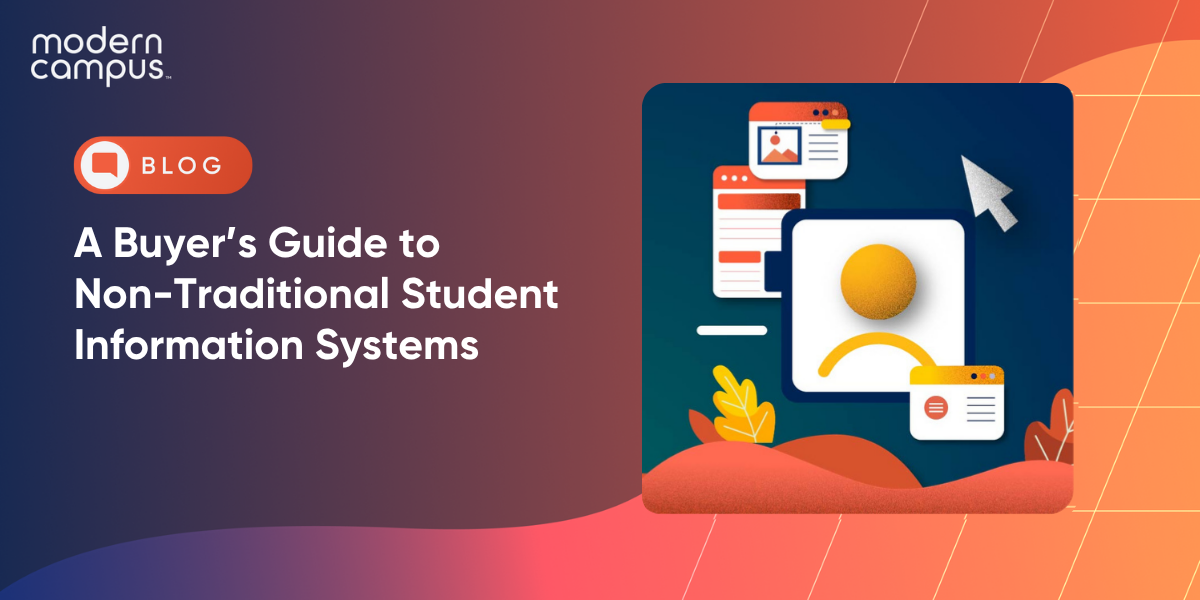Building a Strategy to Sustain Growth in the Next Normal

Though many institutions adapted well to the COVID-19 pandemic, the obstacles created for learner access and success accelerated non-traditional enrollments, prompting explorations of new ways to meet learner needs.
This means reimagining the future of higher education.
In the nineteenth episode of Illumination by Modern Campus, Philip Regier, University Dean for Educational Initiatives & CEO of EdPlus at Arizona State University, highlighted how institutions need to emerge out of a pandemic with a new focus.
“The fact is, people are going to be weaving in and out of the universities forever,” he said.
Similarly, Frank Dooley, Chancellor of Purdue University Global, argues that we as a society have imagined what a college student looks like.
“We've created this urban myth that college means a student is 18 to 22 years old. They’re on campus and go to football games,” he said.
Regier argues that Continuing Education should be immersed into the institution and not be a bolt-on option. The lifelong learning enterprise needs to be a pillar of what the institution does.
To do this, the broader institution needs to work in tandem with Continuing Education. This means having processes and systems in place that can meet the needs of both credit and non-credit sides of the institution.
As Thomas Stith III, President of the North Carolina Community College Systems points out, there’s a need to normalize learners coming in and out of the educational process.
“They want an environment that provides a pathway to their educational success—whether that’s a credential, two-year or four-year,” he said.
Learners are looking for a menu of options—just like Uber—when it comes to their education. They expect a personalized experience that gives them the right programs at the right time.
The need isn’t just for a learner to earn a credential, but to prepare them for the workforce. This means having programming aligned with industry needs.
“We need to make sure we're filling a pipeline, while helping each student actualize what they want in their career and life,” said Sue Ellspermann, President of Ivy Tech Community College.
When an institution provides that career development, learners are more likely to stay during their career journey. In turn, student retention rates increase.
It means incorporating both industry and learner needs to be successful. As Madeline Purmariega, President of Miami Dade College points out, consumerism will be the one to drive innovation for higher education.
“It’s about how we build [stackable credentials] in emerging industries for our regions and communities, but then package those to students in a real, personalized way,” she said.
This personalized experience is the future of higher education as we emerge into a new normal. And Continuing Education and Workforce Development can help.
These divisions are experienced with serving non-traditional learners and institutions should use this knowledge to help them grow not only as an institution but also as an industry.
As Stith points out, workforce education credentials are shorter, have a quick turnaround time and make learners more marketable in the workplace.
“As we look at strategies to meet our new learners, the workforce credentials are going to be key,” he said.
Sustainability in higher ed will come down to aligning Continuing Education with the student: Implementing practices that enhance the learner’s experience and outcomes, and breaking down departmental silos so they’re engaged with and supported equally across campus.
“People will come in at different parts—they’ll leave and come back,” Ellspermann said, “We treat them in the same way…every student counts.”
This episode is a segment from Insights on Higher Education’s Next Normal: Building a Strategy for Sustained Growth, a webinar hosted by Modern Campus and The EvoLLLution, in partnership with The Chronicle of Higher Education. To watch the full webinar, click here.
Last updated: November 11, 2021


